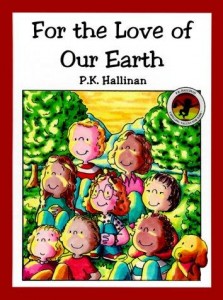News & Calendar:
- Don’t forget to log last week’s reading online (or in the planner if you don’t have access to internet) ASAP, but by Friday morning at the latest.
- As of last Thursday, you can sign up online for our first S.E.P. conferences of the year! They will be held Tuesday, September 23rd & Thursday, September 24th. Click the link to sign up for a time that works best for both student and parent(s). If you don’t have access to internet, email me or write me a note including a good time to call you to set up your appointment over the phone. Password for our school is skyhawks. As of Monday 9/15 we only need 24 more families to sign up; great job so far!
- September Scholastic book orders are due by Monday, September 15th at midnight (although technically I submit it during the day on the 16th in case you need a little more time.) Click here if you’d like to place an order online: https://orders.scholastic.com/JDXTV
General Objectives for this week:
Students will be able to…
… read and comprehend this week’s selection, “For the Love of Our Earth,” focusing on the comprehension skill “Making Connections.”
… learn and use these vocabulary words: litter, glows, dawn, engines, & witness.
… read and retell the decodable story #12 & #13.
… read and practice this week’s poem: “A Wise Old Owl.”
… contribute to writing a class list of “Jobs that show Kindness.”
Objectives from our “Imagine It!” Program:
Students will be able to…
Reading Literature:
…recount details from a text to determine the central message of a story.
…compare & contrast the central message across a variety of stories.
… identify rhyming words in poems and stories.
… identify and understand key ideas and details when I summarize and make connections.
Reading Foundational Skills:
… identify long /o/ vowel spellings in one-syllable words.
… decode long /u/ vowel spellings in one and two-syllable words.
… recognize words that don’t follow traditional spelling rules.
…To comprehend, identify the purpose of a text.
… read on-level text fluently with an appropriate pace.
Writing:
…answer a question recalling information from experiences.
Speaking and Listening:
…identify appropriate facts and relevant descriptive details to share verbally.
Language:
… follow spelling rules and patterns for long /o/ and /u/ vowel spellings.
… connect vocabulary word meanings to the theme, and selections I read.
… use words and phrases acquired through reading, conversations, and responding to texts.
Spelling Words for this Week:
1. joke
2. menu
3. soda
4. vote
5. mule
6. nose
7. most
8. cure
9. unit
10. fuse
11. comb
12. total
13. suppose
14. bugle
15. human
Spelling HOMEWORK for this week:
Monday– “Copy 3x”= copy the words you missed on the pretest 3 times
Tuesday– “ABC Order”= list the spelling words in ABC order
Wednesday– “Syllables”= sort your words by how many syllables are in the words. For words that have more than one, place a large dot or slash in between each syllable, such as “ba/sic”
Thursday– “Quiz”= have a partner quiz you on the words
Friday- Test!
Common Core Standards we are focusing on that match this week’s objectives:
RL 2.2: Recount stories, including fables and folktales from diverse cultures, and determine their central message, lesson, or moral.
RL 2.4: Describe how words and phrases (e.g., regular beats, alliteration, rhymes, repeated lines) supply rhythm and meaning in a story, poem, or song.
RL 2.10: By the end of the year, read and comprehend literature, including stories and poetry, in the grades 2-3 text complexity band proficiently, with scaffolding as needed at the high end of the range.
RF 2.3: Know and apply grade-level phonics and word analysis skills in decoding words.
RF 2.4: Read with sufficient accuracy and fluency to support comprehension.
W 2.8: Recall information from experiences or gather information from provided sources to answer a question.
SL 2.4: Tell a story or recount an experience with appropriate facts and relevant, descriptive details, speaking audibly in coherent sentences.
L 2.2: Demonstrate command of the conventions of standard English capitalization, punctuation, and spelling when writing.
L 2.5: Demonstrate understanding of word relationships and nuances in word meanings.
L 2.6: Use words and phrases acquired through conversations, reading and being read to, and responding to texts, including using adjectives and adverbs to describe (e.g., When other kids are happy that makes me happy).
Mystery Question! Your student will receive a Skyhawk HERO Ticket if he or she can answer the “Mystery Question” in his or her planner or on a piece of paper sometime before Friday:
Can you tell me one common noun and one proper noun that you can find inside your home? (Remember, a common noun is any person, animal, place, or thing. A proper noun is a SPECIFIC person, animal, place, or thing, and needs a capital letter to be spelled correctly!)
